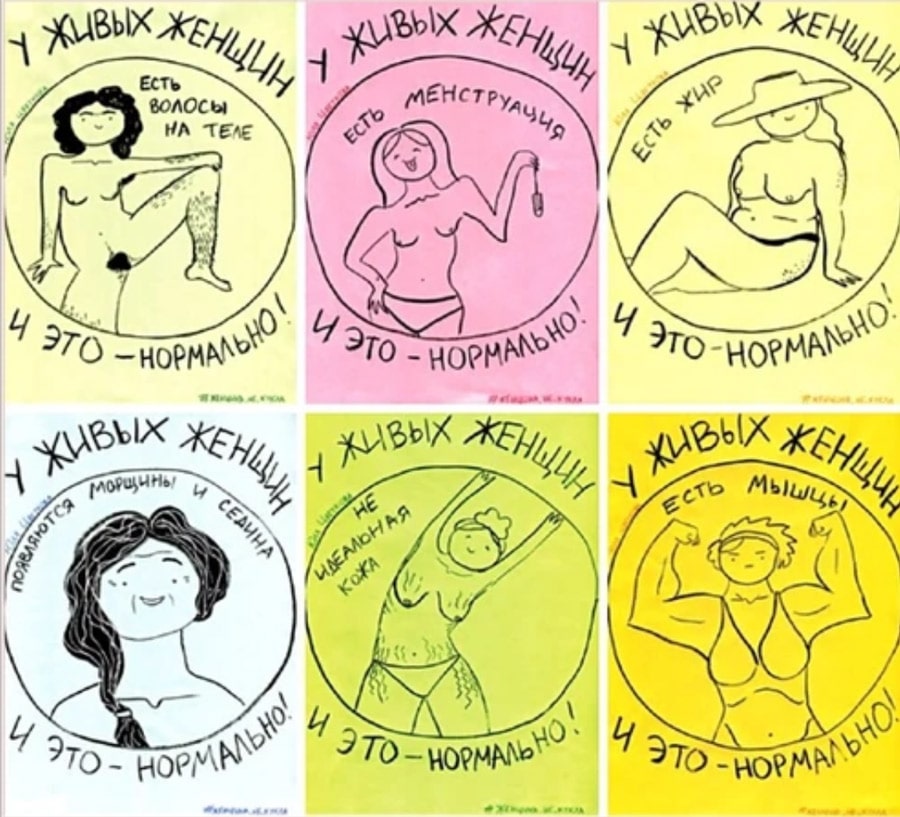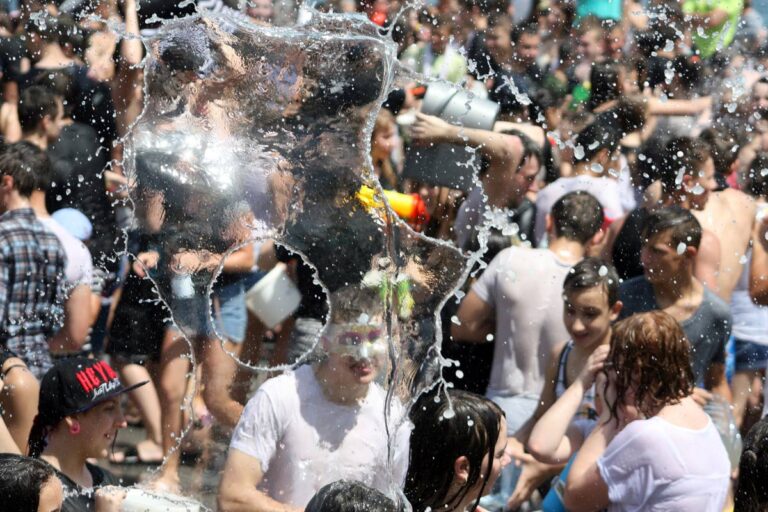Russian artist faces six years in jail for pro-LGBTQ+ and body-positive cartoons
Yulia Tsvetkova, a 27-year-old feminist and queer rights activist from Komsomolsk-on-Amur in East Russia, has been charged with violating the Russian “gay propaganda” law and distribution of “pornography” for sharing drawings of same-sex families and vaginas on social media.
Last month, the prosecutor’s office in charge of her case approved the indictment against Tsvetkova; if convicted, she could face up to six years in prison. Tsvetkova’s persecution by the Russian authorities reflects a broader campaign by the government to crackdown on members of the queer community and muzzle anyone advocating for their freedom and rights.
All Out, an international NGO fighting for LGBTQ rights, has teamed up with the Moscow Community Center and launched a petition calling for the elimination of the charges against Tsvetkova and for the abolition of Russia’s “gay propaganda” law.
The authorities’ persecution of Tsvetkova began in 2019, when she was preparing to stage a play titled ‘Blue and Pink’ which dealt with gender stereotypes and criticised the country’s culture of militarism. Following mounting pressure from the authorities, Tsvetkova cancelled the play.
“I don’t know which was worse for the authorities, the play about gender, which they don’t understand and are afraid of, or the other play, which was pretty political, very sharp. I guess it’s the combination of both that got me here,” Tsvetkova told CNN.
Following the play incident, Tsvetkova and her mother were summoned to the police station either on a weekly or bi-weekly recurrence as the authorities scoured for any shred of evidence that could help them press criminal charges against her. Finally, the police came across a blog titled ‘The Vagina Monologues’ that Tsvetkova had founded and managed, in which she featured drawings of female body parts created by herself and others.
Through her work, Tsvetkova sought to shatter stereotypes surrounding the vagina and promote body positivity. The text in one of her drawings, for instance, read “Women who are alive have body fat and this is fine!”

It was for posting these drawings that the authorities charged Tsvetkova with promoting pornography. Then, in January 2020, she was charged with violating the notorious “gay propaganda law” after she posted a drawing featuring same-sex families along with the caption “A family is where there is love. Support LGBT+ families!”
After being placed under house arrest, Tsvetkova was released in March 2020, but has since been prohibited from leaving the country or changing her address.
Tsvetkova’s arrest has drawn sharp criticism from human and LGBTQ rights activists and organisations around the world. Last year, Amnesty International, along with several other NGOs, had recognised Tsvetkova as a political prisoner and called for the charges against her to be dropped.
“Russian authorities have tried everything to intimidate Yulia: They searched her home, put her under house arrest for over three months, ordered her not to leave the country, fined her twice for violating the Russian ‘gay propaganda’ law, and brought trumped-up charges against her for ‘distributing pornography’,” said Matt Beard, Executive Director of All Out. “Now her trial can happen any time and she could go to jail for up to six years. And all of this just for sharing on social media innocent drawings of same-sex families and motives promoting inclusivity. Nobody should be prosecuted simply for expressing their wish for equality,” he added.
The controversy has also spread throughout Russia, where, despite the public’s deep-rooted conservatism, individuals and groups have nonetheless taken to social media and the streets to protest Tsvetkova’s arrest. On social media, women have been posting pictures of their bodies (often emphasising hair, curves and skin blemishes) along with the phrase “my body is not pornography” in solidarity with Tsvetkova.
Protests against Tsvetkova’s arrest have been taking place throughout Russia, and have even reached her hometown in the far Eastern region of the country. Numerous artists and media figures have also come out in support of her, something Tsvetkova claims has made her feel less alone in her struggle.
“Anonymity is the scariest thing,” she told DW, “and I know that because I was alone at the beginning. It meant that if I was at the police station, I knew that they could do whatever they want and no one would ever find out.”
“[Tsvetkova] is not the first person to be targeted under the ‘gay propaganda’ law. But with your help, she might be the last,” reads All Out’s petition, which has so far garnered over 165,000 signatures. Her trial could begin any day now.





